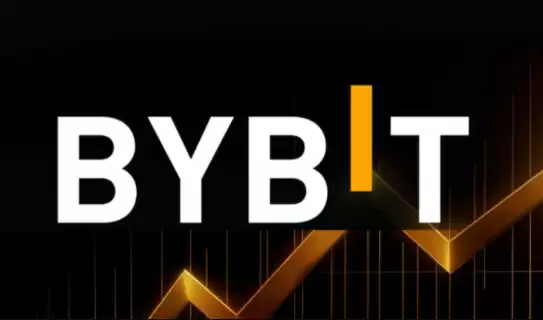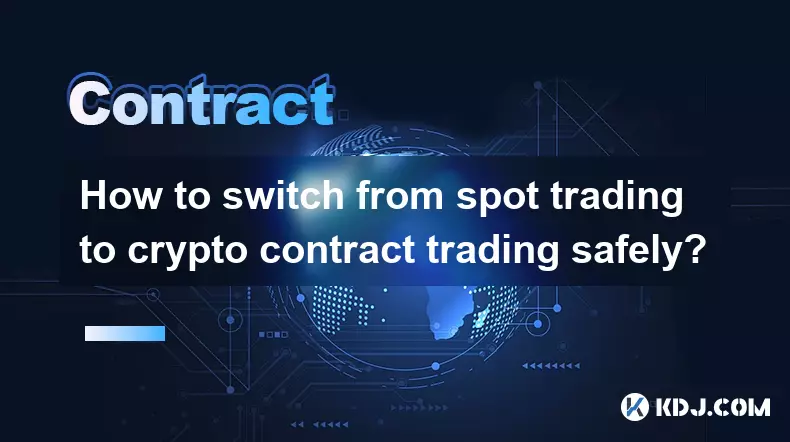-
 bitcoin
bitcoin $87959.907984 USD
1.34% -
 ethereum
ethereum $2920.497338 USD
3.04% -
 tether
tether $0.999775 USD
0.00% -
 xrp
xrp $2.237324 USD
8.12% -
 bnb
bnb $860.243768 USD
0.90% -
 solana
solana $138.089498 USD
5.43% -
 usd-coin
usd-coin $0.999807 USD
0.01% -
 tron
tron $0.272801 USD
-1.53% -
 dogecoin
dogecoin $0.150904 USD
2.96% -
 cardano
cardano $0.421635 USD
1.97% -
 hyperliquid
hyperliquid $32.152445 USD
2.23% -
 bitcoin-cash
bitcoin-cash $533.301069 USD
-1.94% -
 chainlink
chainlink $12.953417 USD
2.68% -
 unus-sed-leo
unus-sed-leo $9.535951 USD
0.73% -
 zcash
zcash $521.483386 USD
-2.87%
How to play Bybit option contract
In the realm of derivatives trading, understanding the distinct characteristics of option contracts from futures contracts is paramount, as options empower traders with the right but not the obligation to buy or sell an underlying asset at a predetermined price and time.
Nov 11, 2024 at 01:17 am

- Distinguishing Option Contracts from Futures Contracts:
- An essential precursor to understanding option contracts is comprehending their distinction from futures contracts. While both are derivatives, futures impose an obligation to buy or sell an underlying asset at a predetermined price on a specified date, whereas options grant the right, but not the obligation, to do so.
- The holder of an option contract has the discretion to execute (exercise) the option or let it expire worthless. This flexibility distinguishes it from futures, where the obligation to fulfill the contract is binding.
- Types of Options:
- Bybit offers two types of options: call options and put options.
- Call options convey the right to buy an underlying asset at a specified price (strike price) before or on a fixed date (expiry date).
- Conversely, put options bestow the right to sell an underlying asset at the strike price before or on the expiry date.
- Key Option Contract Terminology:
- Strike Price: The predetermined price at which the underlying asset can be bought or sold.
- Expiry Date: The day when the option contract ceases to exist.
- Option Premium: The price paid to purchase the option contract, representing the cost of acquiring the right to buy or sell the underlying asset.
- Creating a Bybit Account:
- Establishing a Bybit account is the first step towards trading option contracts on the platform.
- Visit the Bybit website, provide the required personal and contact information, and complete the account creation process.
- Depositing Funds into Your Account:
- To fund your Bybit account, you can either transfer cryptocurrency from an external wallet or make a fiat currency deposit via a supported payment method.
- Once the funds have been deposited, they will be available in your trading account balance.
- Accessing the Bybit Option Market:
- Navigate to the "Derivatives" tab on the Bybit website or app.
- Select "Options" from the menu to access the options trading interface.
- Selecting an Option Contract:
- Choose the underlying asset you wish to trade (e.g., BTC, ETH).
- Specify the type of option (call or put), strike price, and expiry date.
- Review the contract details and confirm that they align with your trading strategy.
- Placing an Option Order:
- Determine the quantity of option contracts you want to purchase.
- Enter the order quantity and select the order type (limit, market, stop).
- Review the order summary and confirm the details before placing the order.
- Monitoring and Managing Your Option Positions:
- Track your option positions by accessing the "Positions" tab in the Bybit interface.
- Monitor the evolution of the underlying asset's price and adjust your trading strategy accordingly.
- Consider the potential profit or loss scenarios associated with each option position.
- Exercising Your Option Contract:
- If the underlying asset's price moves favorably, you may exercise your option to buy or sell the asset at the strike price.
- The profit or loss on the option contract will be realized upon execution.
- Understanding Option Greeks:
- Familiarize yourself with important option pricing metrics known as Greeks.
- Greeks like Delta, Gamma, Vega, and Theta provide valuable insights into how option prices react to changes in underlying asset prices, time decay, and volatility.
Disclaimer:info@kdj.com
The information provided is not trading advice. kdj.com does not assume any responsibility for any investments made based on the information provided in this article. Cryptocurrencies are highly volatile and it is highly recommended that you invest with caution after thorough research!
If you believe that the content used on this website infringes your copyright, please contact us immediately (info@kdj.com) and we will delete it promptly.
- Blockchain Gaming's Quiet Revolution: Unpacking Latest Trends and Industry Insights Amidst Market Shifts
- 2026-02-02 06:30:01
- Crypto Crossroads: Bitcoin Price Reacts to Fed Jitters Amidst Shifting Sands
- 2026-02-02 05:05:02
- Justin Sun, Tron, Manipulation Allegations: New Bitcoin Strategy Meets Lingering Controversy
- 2026-02-02 05:05:02
- Bitcoin Eyes $77K as Michael Saylor Reaffirms Unwavering Conviction Amidst Market Swings
- 2026-02-02 05:00:02
- Altcoin Season on the Horizon? ETH, XRP, SOL, ADA Face Potential 184x Gains Amidst Shifting Crypto Landscape
- 2026-02-02 05:00:02
- Bitcoin ETF News: Latest Updates Drive Investment and Market Dynamics
- 2026-02-02 04:50:02
Related knowledge

How to close a crypto contract position manually or automatically?
Feb 01,2026 at 11:19pm
Manual Position Closure Process1. Log into the trading platform where the contract is active and navigate to the 'Positions' or 'Open Orders' tab. 2. ...

How to understand the impact of Bitcoin ETFs on crypto contracts?
Feb 01,2026 at 04:19pm
Bitcoin ETFs and Market Liquidity1. Bitcoin ETFs introduce institutional capital directly into the spot market, increasing order book depth and reduci...

How to trade DeFi contracts during the current liquidity surge?
Feb 01,2026 at 07:00am
Understanding Liquidity Dynamics in DeFi Protocols1. Liquidity surges in DeFi are often triggered by coordinated capital inflows from yield farming in...

How to trade micro-cap crypto contracts with high growth potential?
Feb 01,2026 at 02:20pm
Understanding Micro-Cap Crypto Contracts1. Micro-cap crypto contracts refer to derivative instruments tied to tokens with market capitalizations under...

How to optimize your workspace for professional crypto contract trading?
Feb 01,2026 at 08:20pm
Hardware Infrastructure Requirements1. High-frequency crypto contract trading demands ultra-low latency execution. A dedicated workstation with a mini...

How to switch from spot trading to crypto contract trading safely?
Feb 01,2026 at 03:59pm
Understanding the Core Differences Between Spot and Contract Trading1. Spot trading involves the immediate exchange of cryptocurrencies for fiat or ot...

How to close a crypto contract position manually or automatically?
Feb 01,2026 at 11:19pm
Manual Position Closure Process1. Log into the trading platform where the contract is active and navigate to the 'Positions' or 'Open Orders' tab. 2. ...

How to understand the impact of Bitcoin ETFs on crypto contracts?
Feb 01,2026 at 04:19pm
Bitcoin ETFs and Market Liquidity1. Bitcoin ETFs introduce institutional capital directly into the spot market, increasing order book depth and reduci...

How to trade DeFi contracts during the current liquidity surge?
Feb 01,2026 at 07:00am
Understanding Liquidity Dynamics in DeFi Protocols1. Liquidity surges in DeFi are often triggered by coordinated capital inflows from yield farming in...

How to trade micro-cap crypto contracts with high growth potential?
Feb 01,2026 at 02:20pm
Understanding Micro-Cap Crypto Contracts1. Micro-cap crypto contracts refer to derivative instruments tied to tokens with market capitalizations under...

How to optimize your workspace for professional crypto contract trading?
Feb 01,2026 at 08:20pm
Hardware Infrastructure Requirements1. High-frequency crypto contract trading demands ultra-low latency execution. A dedicated workstation with a mini...

How to switch from spot trading to crypto contract trading safely?
Feb 01,2026 at 03:59pm
Understanding the Core Differences Between Spot and Contract Trading1. Spot trading involves the immediate exchange of cryptocurrencies for fiat or ot...
See all articles










































































